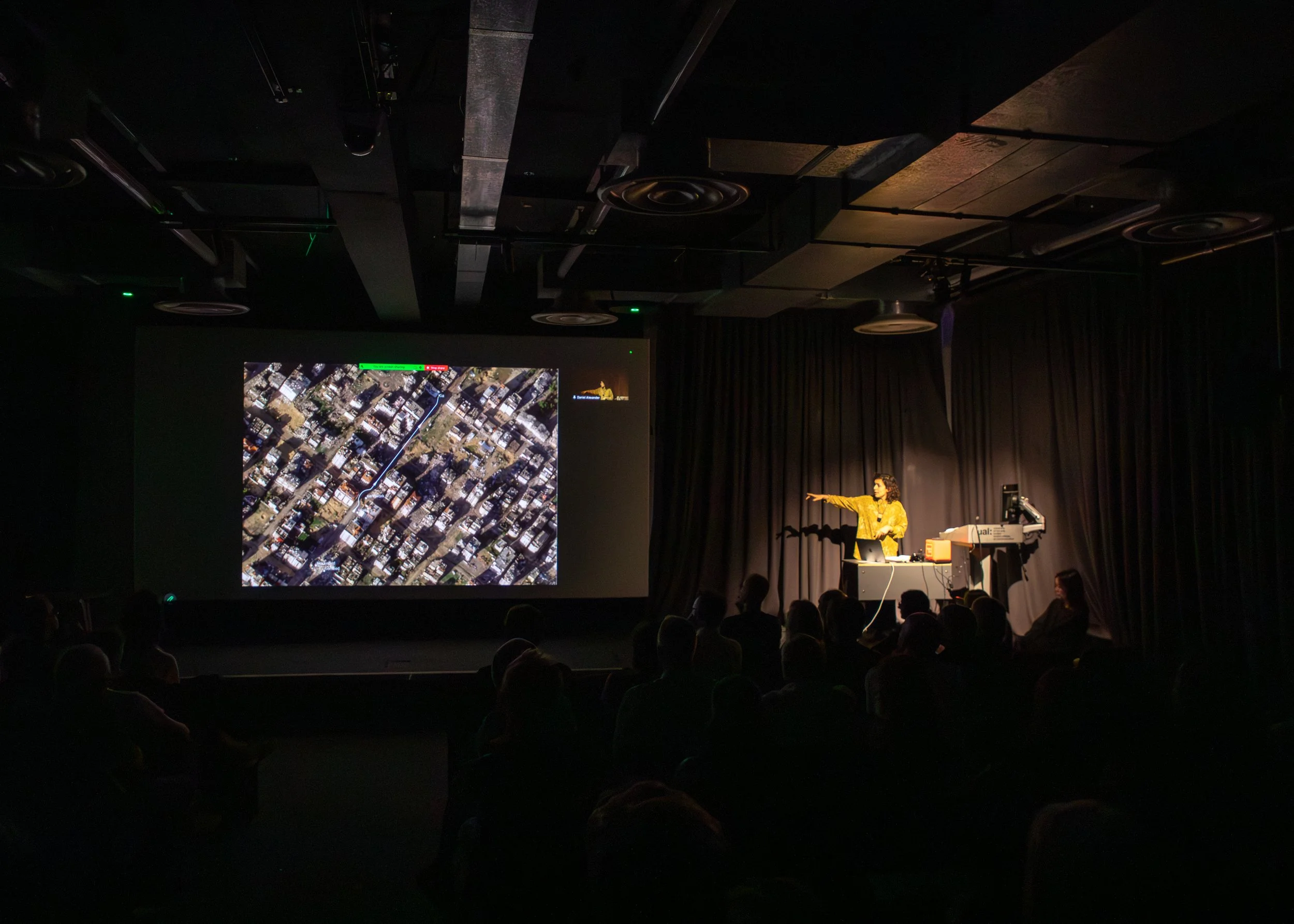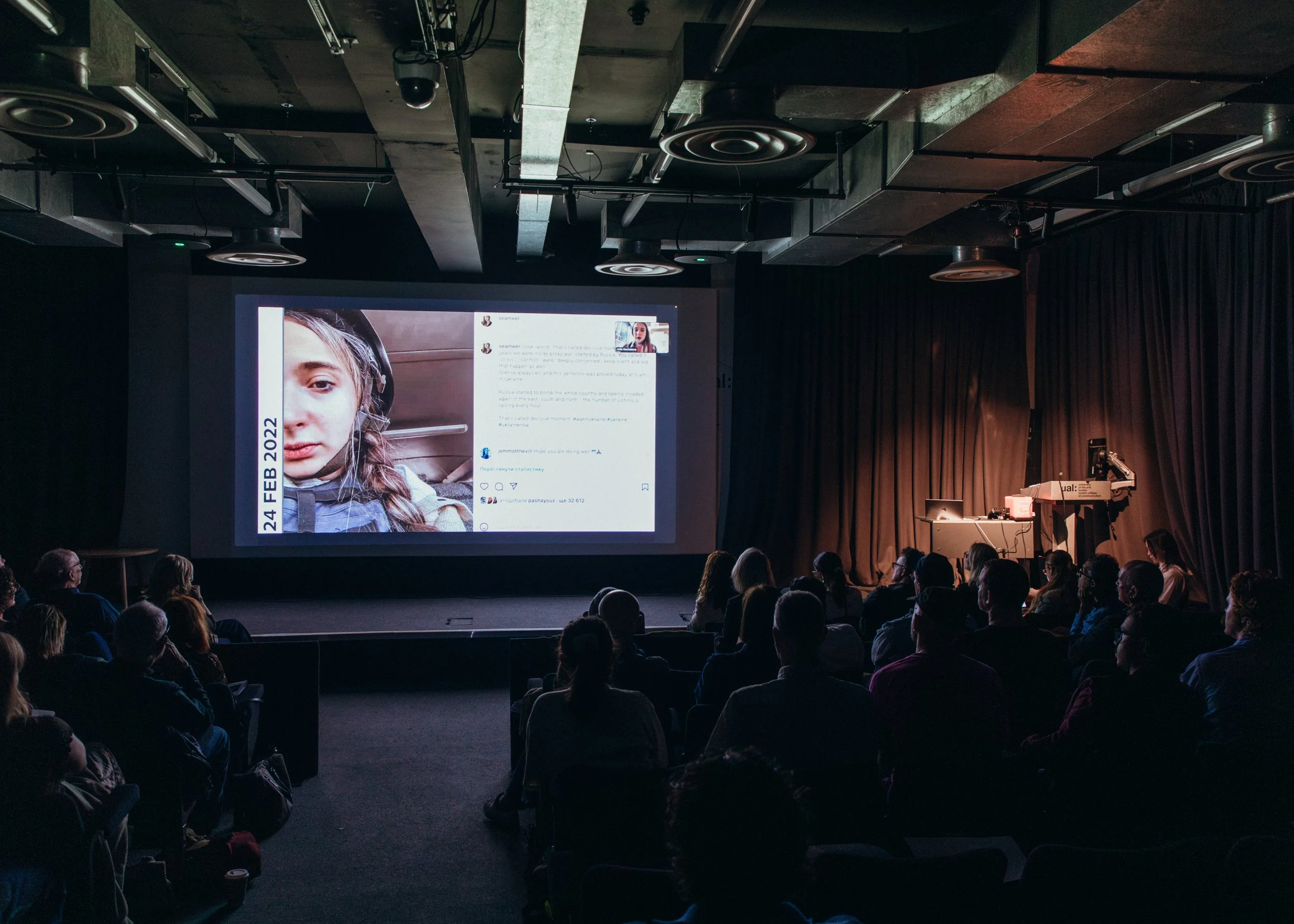‘Show a group of photojournalists with cameras, wearing army helmets, photographing a burning tank in a destroyed city with drones flying overhead. In a seperate part of the picture show civilians with iphones photographing the tank.’ Image created by midjourney AI
Lines of Engagement: How Technology, Ethics and Trust Shape Photojournalism Today
Conference and Exhibition, Sept 2025
Photojournalistic images traditionally serve as a record of events, evidence of abuses of power, carriers of memory and powerful agents for change, but documenting the present is no longer the sole preserve of professional photojournalists from established media organisations. New technologies are continually changing the ways in which images are produced and disseminated.
Photojournalism sits within a complex tapestry of media content, platforms and agendas, continually challenged by misinformation and disinformation, digital disruption and attacks on press freedom. Artificial Intelligence can create realistic images of events that did not happen, or at which no camera was present. This has the potential to undermine trust in all photographic images, as well as opening up unprecedented avenues of possibility.
News reports frequently include other forms of imagery, for example satellite and drone footage, changing the distances and perspectives from which we see. Organisations like Amnesty International and Forensic Architecture have developed advanced image verification and visualisation tools that enable them to take vast amounts of open-source imagery and create compelling stories from them, expanding the way we think of the role of a photojournalist.
This exhibition and conference considers how these developments impact the role that photojournalism plays in shaping public perception, and documenting history. They will explore where ideas of truth, impartiality and trust now sit within the contemporary media landscape.
Lines of Engagement poses critical questions about what contemporary photojournalism practice is, what photojournalism education should seek to teach students and what in turn students might ask from a media that is fighting to stay relevant in the increasingly fraught attention economy.
Conference presentations for each of these six panels are available to watch using the menu at the top of this page: Technologies of Image Creation, The Attention Economy, Open Source Investigations, Ai - Visibility and Trust, Contemporary War Photography, Partnership Models of Photojournalism.
Exhibition curated by Daniel Alexander with curatorial support from Alexia Singh
Conference organised by Alexia Singh, Daniel Alexander and Vicki Thornton
Conference images by Wilf Carter






